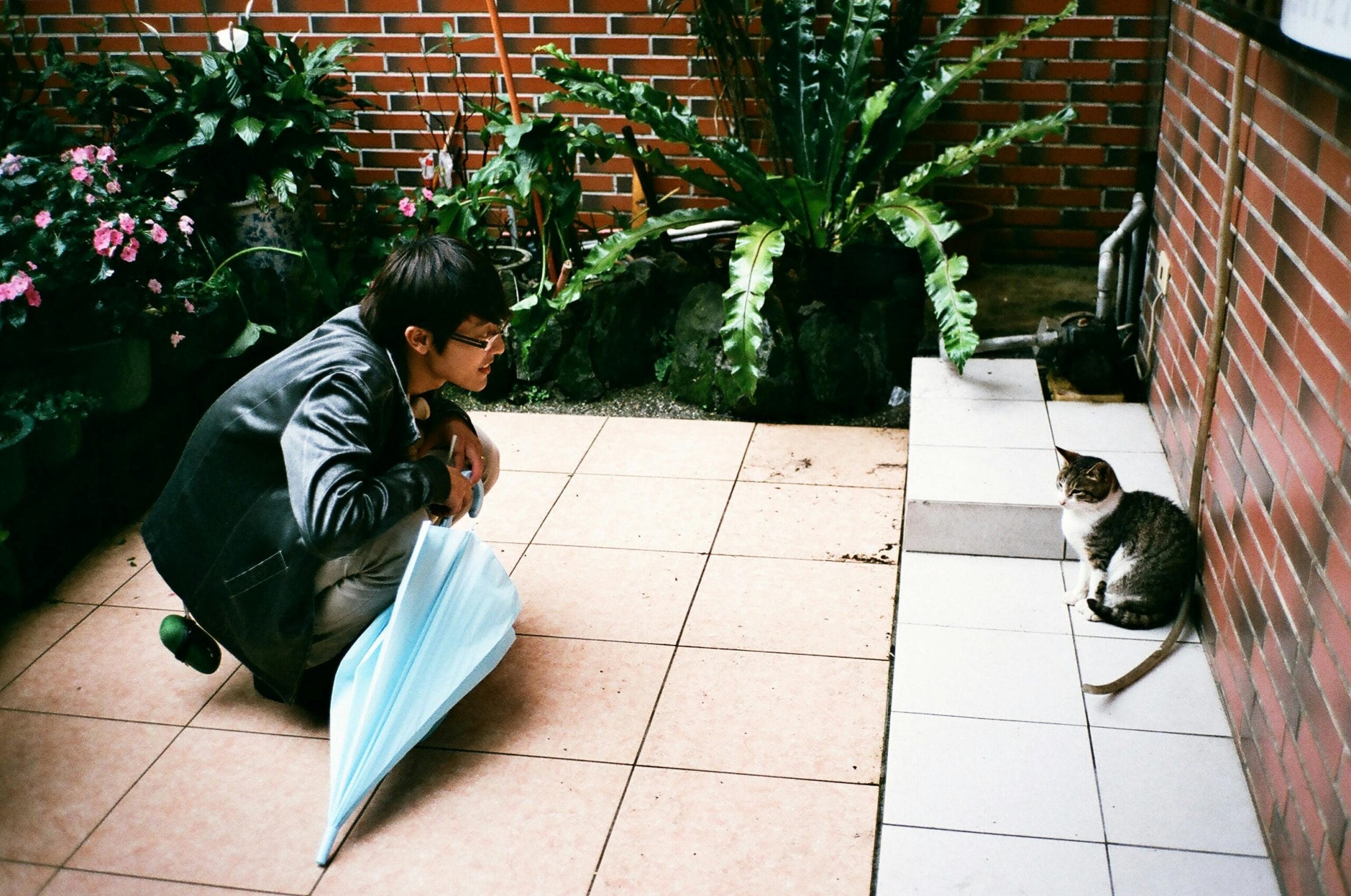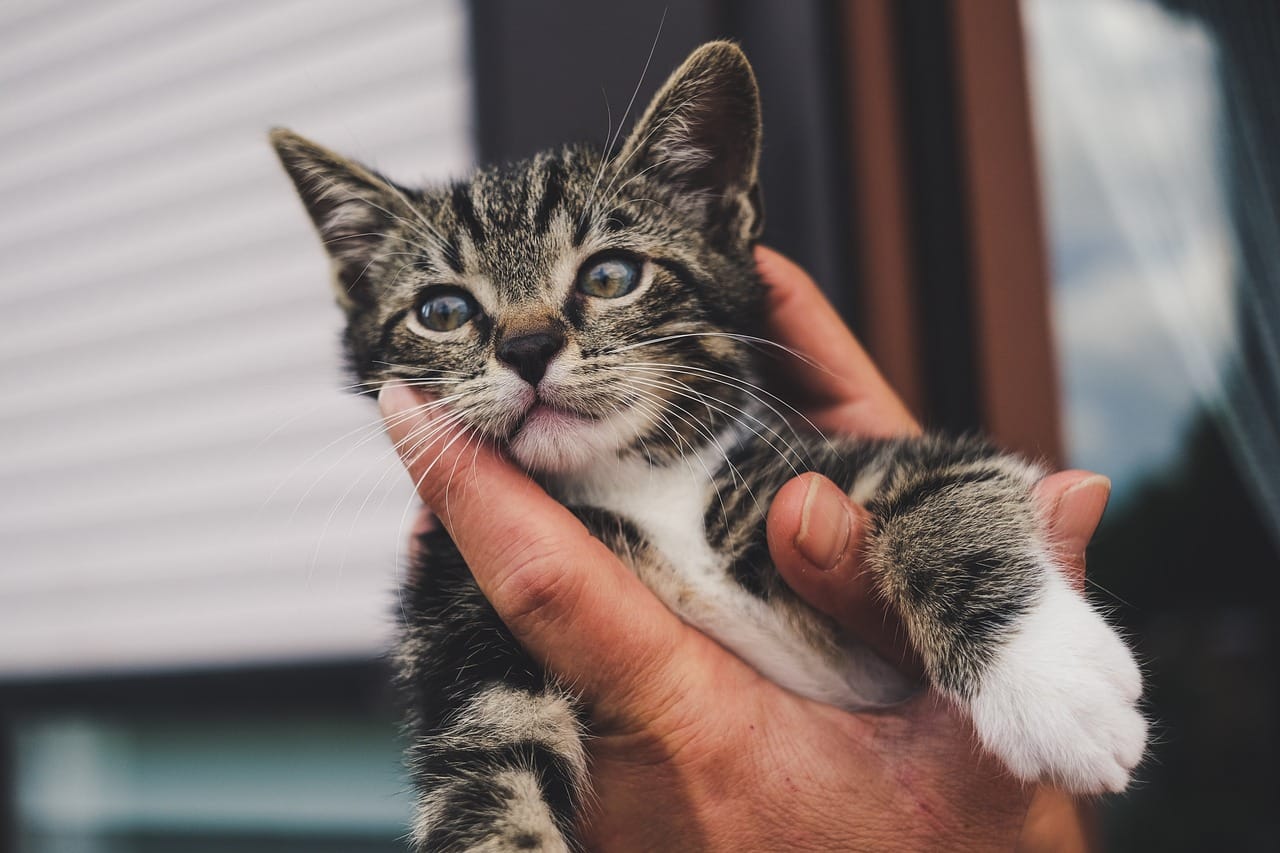When To Take Kitten To Vet ?

When To Take Kitten To Vet? Learn the crucial timing for your kitten’s first vet visit & newborn kitten vet visit. Ensure your furry friend gets the best start with expert advice! Book that appointment today!
When To Take Your Kitten To The Vet: A Comprehensive Guide
Bringing a new kitten into your home is an exciting time, filled with playful antics and adorable purrs. But amidst the joy, responsible pet ownership requires understanding when to seek veterinary care. Knowing when to take your kitten to the vet is crucial for ensuring its health and longevity. This comprehensive guide will walk you through the essential milestones and warning signs that necessitate a visit to the veterinarian.
Your Kitten’s First Vet Visit: Establishing a Baseline
The kitten first vet visit is a cornerstone of preventative healthcare. Ideally, this initial appointment should occur within the first few days to a week after you bring your kitten home, even if they seem perfectly healthy. This early visit allows the vet to:
Assessing Overall Health and Development
The veterinarian will perform a thorough physical examination, checking your kitten’s weight, body temperature, heart and lung function, and assessing its overall physical condition. They will also check for any congenital defects or abnormalities that might not be immediately apparent.
Administering Essential Vaccinations
A critical component of the kitten first vet visit is starting the vaccination schedule. Kittens are vulnerable to various infectious diseases, and vaccines are the best way to protect them. The vet will outline a vaccination plan tailored to your kitten’s age and individual circumstances. These vaccines typically cover feline panleukopenia (feline distemper), feline herpesvirus (FHV-1), feline calicivirus (FCV), and rabies. The timing of these vaccinations is crucial, and your vet will guide you.
Testing for Internal and External Parasites
Kittens are highly susceptible to internal parasites like roundworms, hookworms, and coccidia, and external parasites such as fleas and ticks. The vet will usually perform a fecal examination to screen for internal parasites and assess your kitten for external infestations. Appropriate medication will be prescribed to eliminate any parasites found.
Microchipping Your Kitten
Microchipping is a vital step in ensuring your kitten’s safe return if it ever becomes lost. The vet will implant a tiny microchip under the skin, containing a unique identification number linked to your contact information. This simple procedure offers a permanent form of identification.
Nutritional and Behavioral Advice
This initial visit provides an opportunity to discuss nutritional requirements for your kitten’s age and breed, as well as appropriate feeding schedules. Your vet can also offer guidance on litter box training, socialization, and other behavioral aspects of kitten care.
When To Take a Newborn Kitten To The Vet: Urgent Situations
A newborn kitten vet visit is usually warranted under more urgent circumstances. While routine check-ups are essential for older kittens, newborn kittens require immediate attention if they show any signs of distress or illness.
Signs Requiring Immediate Veterinary Attention in Newborn Kittens:
- Failure to gain weight: Consistent weight loss or lack of weight gain is a significant red flag indicating potential health problems such as malnutrition or underlying illness.
- Dehydration: Signs of dehydration, such as sunken eyes, loss of skin elasticity, and lethargy, require urgent veterinary intervention.
- Weakness or lethargy: A newborn kitten that is unusually weak, inactive, or unresponsive should be seen by a vet immediately.
- Diarrhea or vomiting: Severe or persistent diarrhea or vomiting can quickly lead to dehydration and require immediate treatment.
- Difficulty breathing: Any signs of respiratory distress, such as labored breathing, rapid breathing, or unusual noises, necessitate an emergency visit.
- Discharge from eyes or nose: Purulent or excessive discharge from the eyes or nose can indicate an infection and requires prompt veterinary attention.
- Umbilical cord complications: Problems with the umbilical cord, such as bleeding or infection, should be addressed immediately.
- Hypothermia: Newborn kittens are highly susceptible to hypothermia. If a kitten feels unusually cold to the touch, immediate warming measures and veterinary care are necessary.
This list highlights the urgency needed for newborn kittens showing such symptoms. Even if symptoms seem minor, it’s always better to err on the side of caution and seek professional help, especially with newborn kitten vet visit scenarios.
Beyond the First Visit: Ongoing Monitoring and When To Seek Veterinary Attention
While the initial visit establishes a baseline, ongoing monitoring is vital throughout your kitten’s life. Several situations may warrant a subsequent veterinary visit:
Changes in Appetite or Behavior
Sudden or significant changes in appetite (either increased or decreased), lethargy, or unusual behavior (e.g., hiding, aggression, excessive vocalization) can indicate underlying health issues. These shifts warrant a veterinary check-up.
Symptoms of Illness
Any signs of illness, such as sneezing, coughing, vomiting, diarrhea, changes in urination or defecation, difficulty breathing, limping, or skin problems, require veterinary evaluation. Don’t hesitate to contact your veterinarian if you observe any unusual symptoms.
Injury
Any type of injury, no matter how minor it may seem, should be examined by a vet. Even a seemingly small cut or scrape can become infected if not properly treated.
Parasite Infestations
Regular checks for fleas, ticks, and other external parasites are essential. If an infestation is detected, your vet will recommend appropriate treatment to eliminate the parasites and prevent future infestations.
Regular Preventative Care
Even if your kitten appears healthy, regular veterinary check-ups are vital for preventative care. These visits allow for monitoring of your kitten’s growth and development, administration of booster vaccinations, and early detection of potential health issues. Your vet can provide a schedule tailored to your kitten’s needs.
Finding a Veterinarian: A Crucial Step
Finding a reputable veterinarian is essential for your kitten’s health. Look for a vet who specializes in feline medicine, has a clean and well-equipped clinic, and has positive online reviews. Scheduling that kitten first vet visit is a critical step to establishing a healthy relationship with your new pet. The American Veterinary Medical Association (AVMA) website https://www.avma.org/ is a great resource for finding qualified veterinary professionals in your area.
Beyond the Basics: Understanding Your Kitten’s Needs
Understanding your kitten’s normal behavior, eating habits, and elimination patterns is crucial for recognizing when something is wrong. By closely observing your kitten, you’ll be better equipped to detect subtle changes that might indicate a need for veterinary attention. Early intervention can often make a significant difference in the outcome of any illness or injury. Remember, a healthy kitten is a happy kitten! Consistent monitoring combined with regular visits to the vet for vaccinations, parasite screenings, and overall health checks contributes significantly to their overall well-being. This comprehensive approach ensures your kitten thrives for many years to come. The ASPCA website https://www.aspca.org/ offers valuable resources on kitten care and health.
Furthermore, knowing the signs of illness and when a newborn kitten vet visit is necessary can be literally life-saving. By being proactive and attentive, you can ensure your kitten receives the care it needs to grow into a healthy and happy adult cat. Consult your vet regularly regarding their development and any concerns you may have. The Veterinary Information Network (VIN) https://www.vin.com/ provides extensive information on various animal health topics, including feline medicine.
Leave a Comment! Share Your Experiences
Have you had any experiences with your kitten’s first vet visit or dealt with a sudden illness that required an urgent newborn kitten vet visit? Share your stories, tips, and questions in the comments below! Let’s create a supportive community for fellow cat lovers, helping each other navigate the joys and challenges of kitten ownership, and learn more about the importance of timely vet visits. Your experiences can help other new kitten owners understand the critical role of early and regular veterinary care.

10 FAQs: When To Take Your Kitten To The Vet
1. When should I take my newborn kitten to the vet?
Answer: Ideally, a newborn kitten should see a vet within the first few days of life, especially if there are any concerns about its health, like weakness, failure to thrive, or respiratory issues. A newborn kitten vet visit is crucial for assessing overall health and providing necessary preventative care.
2. My kitten is only a few weeks old. Do I need to take it to the vet yet?
Answer: Yes, even if your kitten appears healthy, a vet visit is important within the first few weeks of life. The vet will check for parasites, provide vaccinations (starting around 6-8 weeks), and ensure proper growth and development. This early kitten first vet visit is vital for its long-term health.
3. My kitten seems healthy. When do I need to schedule its first vet appointment?
Answer: Aim for your kitten’s kitten first vet visit between 6 and 8 weeks of age. Even if your kitten appears perfectly healthy, early preventative care is key to avoiding future health problems. The vet will administer vaccinations, check for parasites, and conduct a general health assessment.
4. My kitten is showing signs of illness, but it’s only a few days old. What should I do?
Answer: Don’t delay! Contact your vet immediately. A newborn kitten is very vulnerable, and prompt veterinary attention is crucial. Symptoms such as lethargy, difficulty breathing, or failure to nurse are serious and require immediate care. A newborn kitten vet visit is urgent in these situations.
5. My kitten has diarrhea. When should I take it to the vet?
Answer: Diarrhea can be a sign of several issues, especially in kittens. If your kitten has persistent diarrhea (more than a day or two), is lethargic, or showing other signs of illness, take it to the vet immediately. Don’t wait to see if it improves.
6. My kitten is sneezing. Is this a reason for a vet visit?
Answer: Sneezing in kittens can indicate an upper respiratory infection, which is serious and contagious. If your kitten is sneezing frequently, has a runny nose, or is lethargic, schedule a When To Take Kitten To Vet appointment as soon as possible.
7. My kitten is eating and sleeping normally, but seems a little quiet. Do I still need to take it to the vet?
Answer: While a quiet kitten isn’t always a cause for alarm, it’s better to be safe than sorry. If you’re concerned about your kitten’s behavior or it deviates from its normal routine, schedule a check-up with your vet. It’s always best to address concerns early.
8. My kitten was abandoned and I found it. How soon should I take it to the vet?
Answer: Seek veterinary care immediately for a rescued or abandoned kitten. They are likely to be dehydrated, hungry, and potentially have parasites or other health problems. A prompt When To Take Kitten To Vet appointment is absolutely necessary.
9. When should I schedule my kitten’s vaccinations?
Answer: Most kittens receive their first set of vaccinations around 6-8 weeks of age, at their initial kitten first vet visit. The vet will advise on a vaccination schedule tailored to your kitten’s age and individual needs.
10. How much will my kitten’s first vet visit cost?
Answer: The cost of a kitten first vet visit varies depending on your location and the services required. Contact your local vet clinic to inquire about their fees. Consider pet insurance to help manage costs.

When to Take Your Kitten to the Vet: A Practical Guide
Bringing your new kitten home is exciting, but ensuring their health is paramount. Knowing when to seek veterinary care is crucial for their well-being. This guide offers practical tips and health considerations to help you.
Initial Vet Visit: Within the First Week
Schedule a checkup within the first week of adoption or bringing your kitten home. This initial visit is vital for:
- Complete Physical Exam: The vet will assess your kitten’s overall health, weight, and development.
- Vaccinations: Your kitten will receive age-appropriate vaccinations to protect against common diseases like panleukopenia, feline herpesvirus, and calicivirus.
- Parasite Prevention: Treatment for fleas, ticks, and intestinal parasites will be discussed and implemented.
- Microchipping: Microchipping helps reunite you with your kitten if they ever get lost.
- Feline Leukemia Virus (FeLV) and Feline Immunodeficiency Virus (FIV) Testing: These tests help determine your kitten’s infection status.
Signs You Need to See a Vet Immediately:
Certain symptoms require immediate veterinary attention. Don’t delay if your kitten exhibits:
- Lethargy or Weakness: Unusual tiredness or lack of energy.
- Loss of Appetite: Refusal to eat or significant decrease in food intake.
- Diarrhea or Vomiting: Persistent or severe diarrhea or vomiting.
- Dehydration: Sunken eyes, dry gums, or lethargy.
- Difficulty Breathing: Rapid, labored breathing or open-mouth breathing.
- Bleeding or Wounds: Any visible injuries requiring attention.
- Changes in Urination or Defecation: Straining to urinate or defecate, blood in urine or stool.
- Neurological Signs: Head tilt, tremors, seizures, or disorientation.
- Eye or Ear Discharge: Unusual discharge from the eyes or ears.
Regular Vet Visits:
Beyond the initial visit, regular checkups are essential for preventative care. Follow your vet’s recommendations for vaccinations and parasite prevention. Annual checkups allow early detection of any health issues.
Health Considerations:
Understanding your kitten’s breed can influence health considerations. Certain breeds are prone to specific genetic conditions. Discuss any breed-specific concerns with your vet.
Keywords: kitten vet visit, kitten health, kitten vaccinations, newborn kitten care, kitten emergencies, feline health, vet checkup, parasite prevention, feline diseases